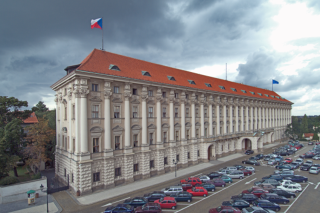
Czech Government Approves New Foreign Policy Framework, Emphasizes Security of Citizens
28.05.2025 / 11:41 | Aktualizováno: 28.05.2025 / 13:59
On Wednesday 28 May, the Government approved a new foreign policy framework, which updates the 2015 Framework and directly follows the 2023 Security Strategy. The aim of the concept is to set up the most stable foreign policy that Czechia needs to successfully promote its interests.
"The main shift of the Framework is that it fundamentally underlines the importance of ensuring the security of the state and its citizens as the main goal. Moreover, it will provide Czech citizens and foreign partners with a comprehensive and comprehensible vision of Czech foreign policy, because it is now more necessary than ever that Czech foreign policy has broad public support," said Minister Lipavský.
The security of Czechia is linked to the security of the wider region, especially whether and how the Russian aggression against Ukraine will be ended. Russia's aggression against Ukraine has brought a turning point with profound and long-lasting consequences for the Czech Republic, Europe and the international community as a whole. Russia has violated key principles and obligations of the UN Charter and a number of other treaties. However, its intentions go far beyond the sovereignty and territorial integrity of Ukraine. Through conventional military force and non-military attacks of various forms, such as information manipulation and interference, economic coercion, cyber operations, subversion and criminal activities, it is seeking to undermine European citizens' confidence in democratic institutions.
"Czechia is located in a region that has repeatedly been the target of Russia's imperial policy. It is therefore in our vital interest that it should not succeed in its aggression against Ukraine and that it should be effectively deterred from plans for any further aggression in Europe. In the Framework Paper we stress that we will remain a reliable member of the EU and NATO and will thus participate both in the formulation and adoption of collective decisions and in their implementation, including the necessary changes within both organisations," said Minister Lipavský.
The framework underlines that Czechia has witnessed a considerable number of changes in recent years, which bring uncertainties and are a source of threats but also opportunities for the international order, and emphasises the responsibility of European allies for security on the European continent.
The framework also addresses the fact that while the formerly defining population and economic weight of the Euro-Atlantic is declining globally, the influence of the Indo-Pacific, with 60% of the world's population and more than 40% of global GDP, is growing.
The framework sees Africa, the fastest growing continent in terms of population and with great resource wealth, as a promising one. Moreover, African states represent more than a quarter of the UN membership and thus constitute a critical mass in international decision-making
New technologies are also an important theme of the framework, which, while raising concerns about abuse by totalitarian regimes, also offer new opportunities.
The framework defines Czechia as a medium-sized, strongly export-oriented country on a global scale. Czech exports account for almost 80% of GDP and 80% of these exports go to the EU. The Czech Republic's prosperity is therefore linked to a favourable environment for open international trade on equal and fair terms.
A professional foreign service with sufficient qualified staff at headquarters and abroad and an adequate network of embassies is also a valuable foreign policy tool.
The main responsibility for implementing the framework lies with the Ministry of Foreign Affairs. However, other institutions - the President of the Republic, the Office of the Government, the National Security Adviser, both chambers of Parliament, ministries and state institutions - also play an important role.

